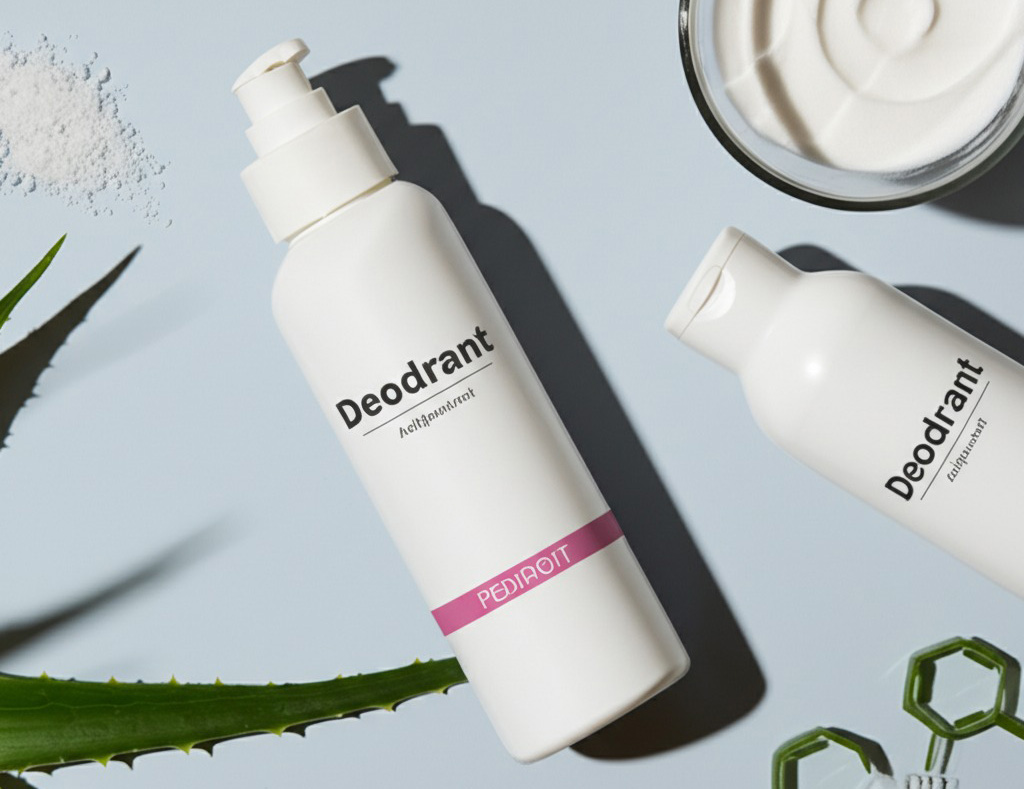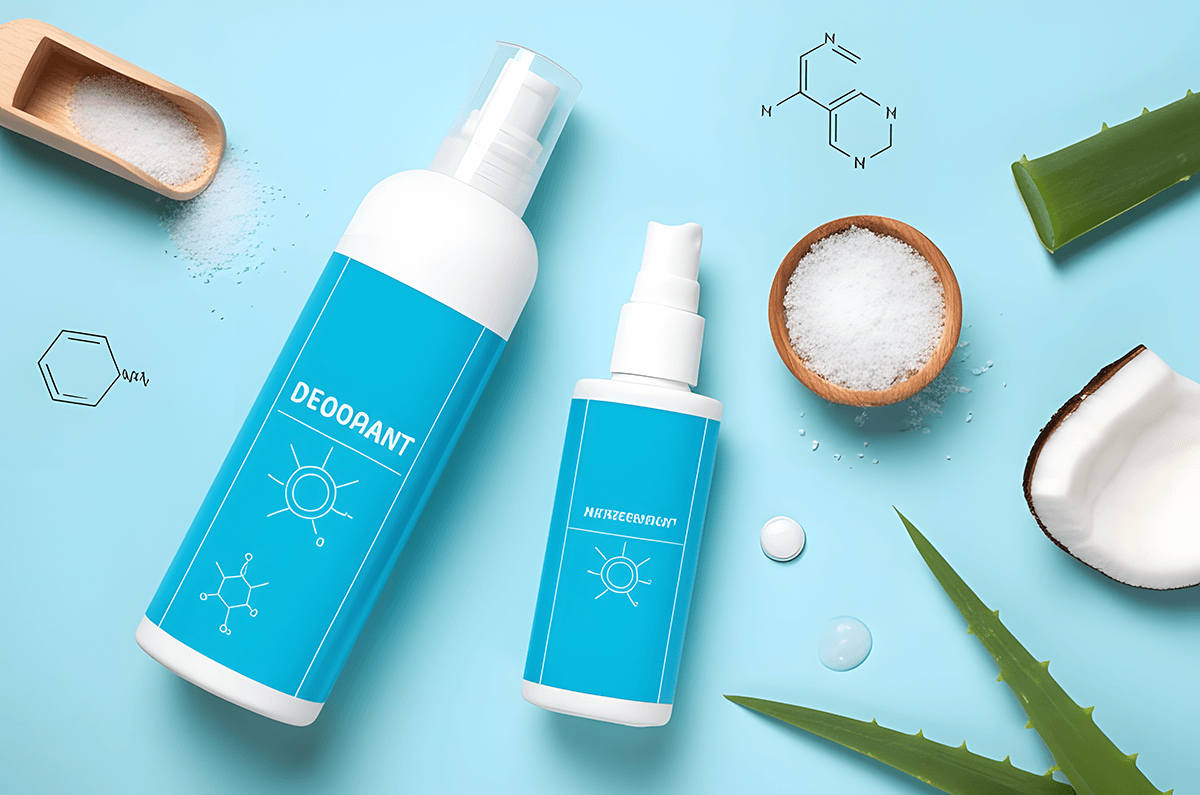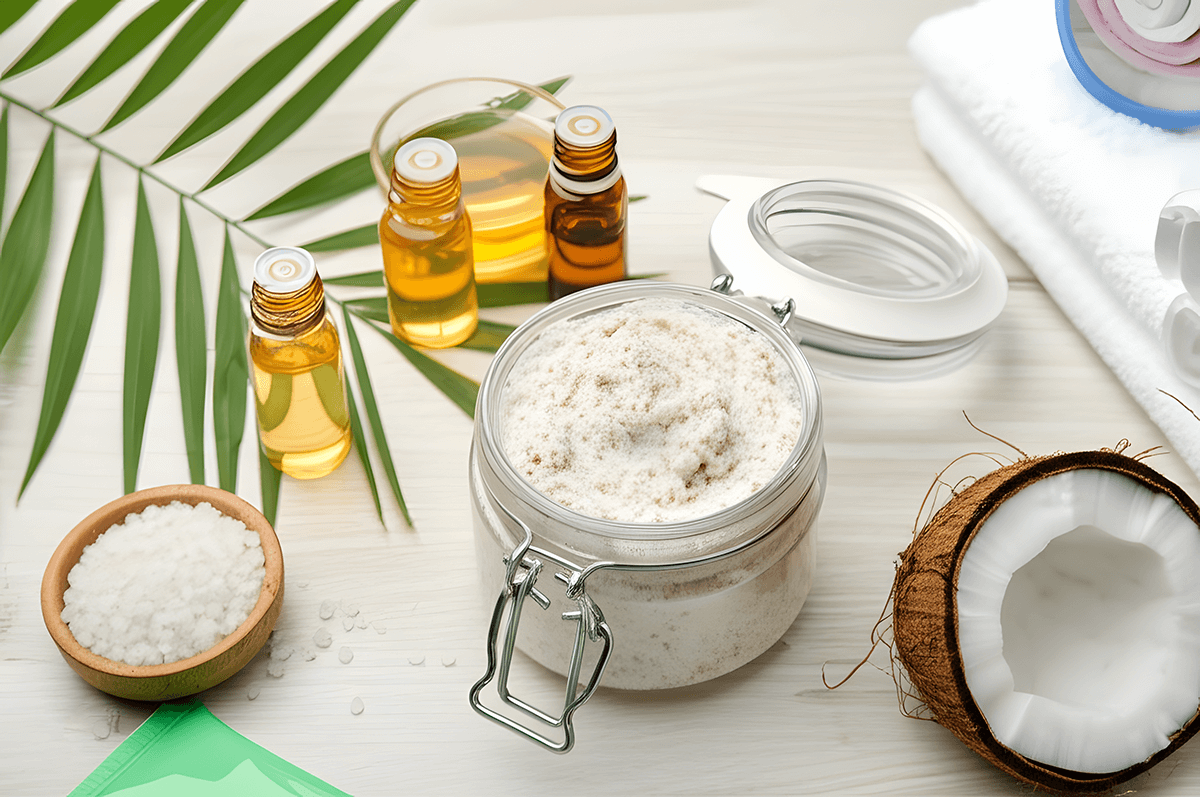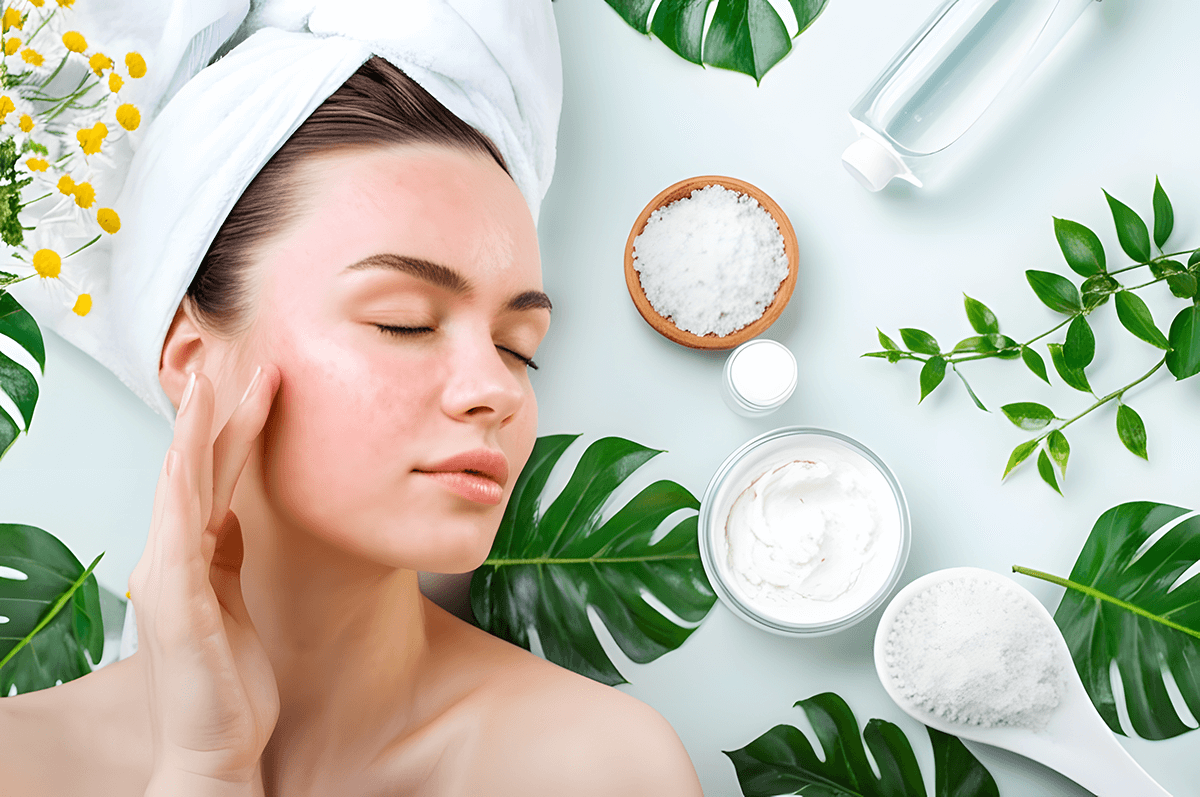When it comes to controlling sweat and odor, the debate between deodorants and antiperspirants has been ongoing for years. Some claim that antiperspirants containing aluminum may pose health risks, while others emphasize the importance of not disrupting the skin’s natural microbiome. But what’s the real science behind these claims, and how do you choose the best option for your needs?
This article breaks down the differences between deodorants and antiperspirants, their effects on the body, and safe alternatives for maintaining fresh and healthy underarms.
Understanding the Difference: Deodorant vs. Antiperspirant
While people often use the terms interchangeably, deodorants and antiperspirants serve different purposes:
- Deodorants control odor by neutralizing bacteria that cause body odor. They do not stop sweating.
- Antiperspirants reduce sweat production by temporarily blocking sweat glands using aluminum-based compounds.
Both products help keep you feeling fresh, but choosing between them depends on your body’s needs and personal preferences.
Are Antiperspirants Safe? The Aluminum Debate
One of the biggest concerns regarding antiperspirants is their use of aluminum salts, such as aluminum chloride or aluminum zirconium, which temporarily plug sweat ducts to reduce perspiration.
Health Concerns and Myths:
✔ Breast Cancer Myth: Some believe that aluminum exposure from antiperspirants increases the risk of breast cancer. However, scientific studies have found no conclusive link between aluminum in antiperspirants and breast cancer. ✔ Alzheimer’s Disease Concerns: Decades ago, some studies suggested a potential connection between aluminum and Alzheimer’s, but modern research indicates that aluminum exposure from antiperspirants is too low to pose a risk. ✔ Lymphatic System Blockage? A common myth is that blocking sweat glands traps toxins, but the body primarily detoxifies through the liver and kidneys, not sweat.
Conclusion: While aluminum-containing antiperspirants are generally considered safe, some people prefer to avoid them due to skin sensitivity or personal preference.
How Deodorants Work: The Role of Microflora
Unlike antiperspirants, deodorants do not prevent sweating. Instead, they combat odor-causing bacteria while often incorporating fragrances, essential oils, or antibacterial agents.
Why Sweat Smells (and How Deodorant Helps)
Sweat itself is odorless—body odor forms when sweat interacts with bacteria on the skin, particularly in the underarm area. Deodorants help by: ✔ Reducing bacteria growth using antimicrobial agents (like alcohol, baking soda, or tea tree oil). ✔ Masking odor with fragrances. ✔ Maintaining a balanced underarm microbiome, which prevents excessive bacterial overgrowth.
However, some deodorants contain irritants, such as alcohol or fragrance, that can disrupt the underarm’s natural microbiota, leading to irritation or an increased reliance on deodorants over time.
Choosing the Right Product: Key Ingredients to Consider

Best Ingredients in Deodorants & Antiperspirants
✔ Aluminum salts (for sweat control in antiperspirants).
✔ Baking soda (natural deodorizing effect, but can be irritating for sensitive skin).
✔ Zinc compounds (neutralize odor without disrupting skin flora).
✔ Magnesium hydroxide (gentle odor control for sensitive skin).
✔ Activated charcoal (absorbs moisture and detoxifies skin).
✔ Essential oils (like lavender or tea tree for natural antibacterial benefits).
✔ Probiotics (help balance underarm microbiome and prevent odor naturally).
Ingredients to Avoid
✖ Parabens (preservatives that some prefer to avoid due to potential hormone disruption concerns).
✖ Phthalates (found in some fragrances, may affect hormone balance).
✖ Triclosan (antibacterial agent that may disrupt beneficial bacteria).
✖ Artificial fragrances (common cause of skin irritation and allergies).
Natural Alternatives to Antiperspirants
For those who prefer to avoid aluminum-based antiperspirants, there are natural ways to control sweat and odorwithout compromising skin health.
1. Crystal Deodorants
✔ Made from potassium alum, a natural mineral salt that prevents odor without blocking sweat. ✔ Leaves a light barrier on the skin that reduces bacterial growth. ✔ Ideal for sensitive skin.
2. Magnesium-Based Deodorants
✔ Magnesium hydroxide balances pH levels, making underarms less hospitable for odor-causing bacteria. ✔ A gentler alternative to baking soda-based deodorants. ✔ Available in cream or stick formulas.
3. Probiotic Deodorants
✔ Contain beneficial bacteria that help maintain healthy underarm microbiota. ✔ Reduces odor naturally without disrupting skin balance. ✔ Often combined with essential oils for added antibacterial protection.
4. Sweat-Absorbing Powders
✔ Talc-free powders with ingredients like arrowroot, cornstarch, or kaolin clay absorb moisture naturally. ✔ Great for those who don’t want to block sweat but want to stay dry and fresh.
Underarm Skincare: Keeping the Skin Healthy
Regardless of whether you choose deodorant or antiperspirant, proper underarm care can help prevent irritation and maintain skin balance.
✔ Exfoliate gently (1-2 times a week) using a mild scrub or a toner with lactic acid to prevent clogged pores.
✔ Moisturize the underarms with a fragrance-free lotion to prevent dryness and irritation.
✔ Let your skin breathe by occasionally skipping deodorant at night.
✔ Wear breathable fabrics like cotton to reduce excessive sweating.
Conclusion: Making the Best Choice for Your Skin
The choice between deodorant and antiperspirant depends on your needs:
- If you sweat excessively, an antiperspirant with aluminum may be the best option.
- If you want to avoid aluminum, a natural deodorant with antibacterial ingredients is a great alternative.
- If you have sensitive skin, look for fragrance-free, alcohol-free formulas that support your skin’s microbiome.
Regardless of your choice, prioritizing gentle, skin-friendly ingredients can help you maintain fresh and healthy underarms without irritation.
Would you consider switching to a natural deodorant, or do you prefer the sweat-blocking power of antiperspirants? Let us know your thoughts below!



